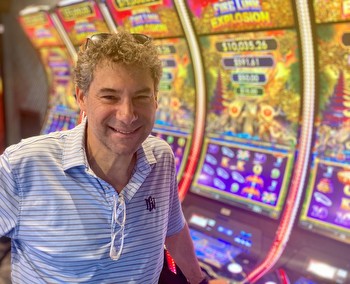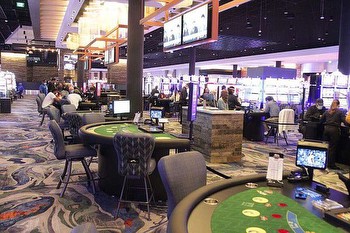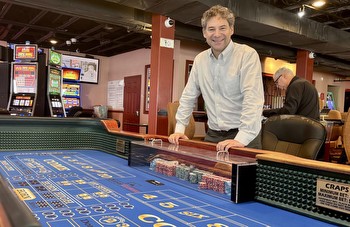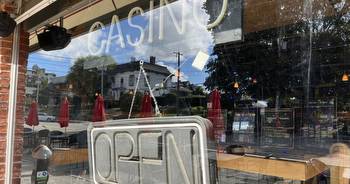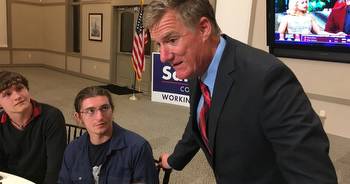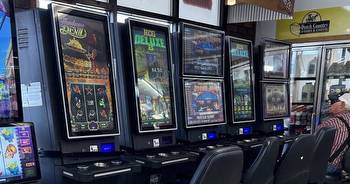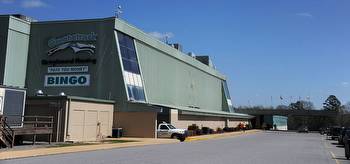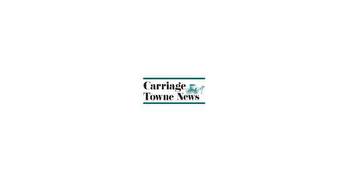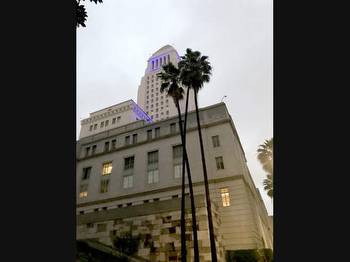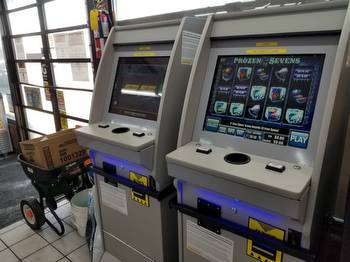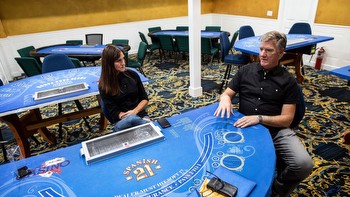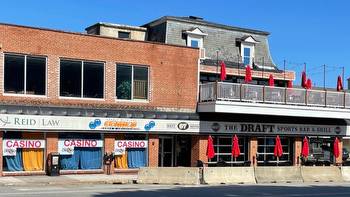Concord Casino attorneys say they’ve found a buyer, gaming commission unconvinced
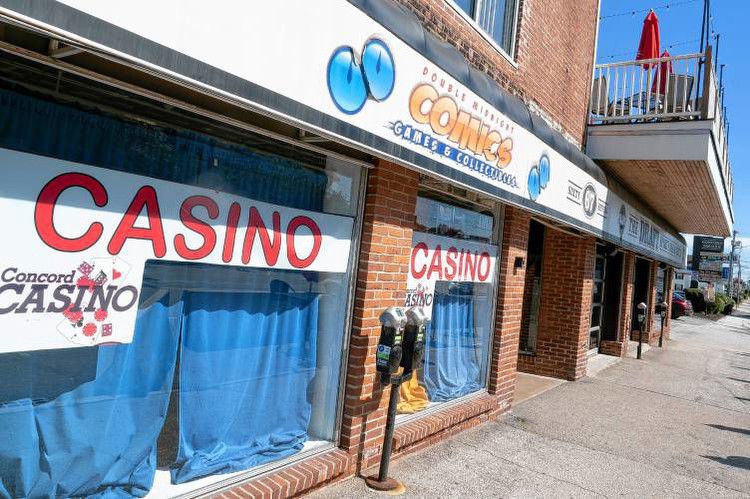
Attorneys for Concord Casino on South Main Street say it has garnered interest from several potential buyers, including a Las Vegas-based gambling company. But the site’s future remains uncertain as the Lottery Commission objects to the operator’s request for an extension, unconvinced that a sale is pending.
Andy Sanborn, operator of Concord Casino, faced a deadline to sell the casino by June 27. It has now been extended to July 18. The extension came from the commission’s confusion over the term “sale pending” in a previous December ruling.
The ruling specifies that a three-month extension is permissible only if a sale is actively pending. Sanborn’s attorneys requested a 90-day extension to finalize the sale with the buyers.
“There is simply no evidence that either party intends to close the deal,” wrote Jessica King, the commission’s attorney. “The respondent is hedging its bets and keeping all options open to any potential deal that may come its way.”
If Sanborn had not secured this temporary extension by June 27, it would have led to the revocation of his license.
While the legalities and language were being sorted out, documents from the Lottery Commission reveal that Concord Casino has attracted interest from several buyers.
After vetting them, they now stand at five potential buyers, according to documents from the lottery commission filed on June 26.
One of the potential buyers is Full House Resorts Inc., a Las Vegas-based, publicly traded gambling company that owns seven casinos across Illinois, Mississippi, Indiana, Nevada, and Colorado.
According to New Hampshire Lottery Commission documents, Full House Resorts had met with commission members in the first week of June.
The casinos owned and operated by the company are significantly larger than Concord Casino. Full House Resorts Inc. owns Stockman’s Casino, which spans 8,400 square feet and is the largest casino in Fallon, Nevada.
During one hearing, Mark Dell’Orfano, representing the New Hampshire Lottery’s Investigation and Compliance Division through the Attorney General’s office, remarked that the commission had informed him that “there was potentially a $30 million deal on the table” from one of the prospective buyers.
This figure significantly exceeds Concord Casino’s earnings over the last three years. In 2023, it reported earnings of $518,930, down from $900,000 in 2022 and nearly $1 million in 2021. Those figures do not include operational expenses and payouts to prize winners, nonprofits and the Lottery Commission.
Dell’Orfano has repeatedly stated that Win Win Win LLC has not provided sufficient evidence to suggest that a sale could be completed within three months in documents and closed hearings.
The commission defines proof of a pending sale as an “offer” or “letter of intent.”
On June 21, hearings officer Gregory Albert, who replaced the retired Michael King in this case, clarified the definition of “pending sale.” According to Judge Albert a pending sale “requires evidence of a clear intent from both seller and buyer to close the transaction.”
Five days later, Sanborn’s attorneys submitted documents to demonstrate that a sale was pending. These documents indicate that five potential buyers over the last six months were in negotiations to acquire the business. But the commission has said that Sanborn has “no clear intent with anyone and is still fielding proposals.”
However, the identities of the buyers, the specifics of their bids and the terms of the agreement are kept confidential and not disclosed to the public.
Of the five potential buyers, four had submitted bids.
One buyer, communicating via email to the commission, has withdrawn from the deal due to concerns about several issues.
The commission’s attorneys wrote that these include proposed zoning ordinances by the Concord City Council that could affect casinos, potential criminal investigations of Win Win Win LLC and the availability of suitable locations for expanding casino operations to accommodate historical horse racing machines.
Despite the documents presented, the commission maintains that the evidence provided is insufficient.
This is the first time the state has taken such a measure to force a casino owner to sell their business or risk license revocation, leading to significant uncertainty regarding the sale process details.
The New Hampshire Lottery Commission and the Attorney General’s office found that Sanborn had misused and fraudulently applied for $844,000 in pandemic relief funds intended for struggling small businesses and not casinos.
In their investigation, they found Sanborn, a former state senator, “unsuitable” for charity gaming.
One of the critical issues revolves around whether Sanborn will have any form of ownership if the business is sold to another buyer.
The commission has stated that “Neither Mr. Sanborn nor any affiliates will have, hold, enjoy or control any ownership, creditor, contractual, beneficial, control or other right or interest” in closing on the sale.
But Dell’Orfano said it could be possible for Sanborn to own a non-material percentage of the stock that would not influence the business.
Additionally, questions have arisen regarding the Attorney General’s authority to stipulate the terms in the sale agreement and the potential liabilities that a new owner of Win Win Win LLC might face in the event of a criminal investigation involving the current owner, Sanborn, or the business before acquisition.
There is also uncertainty whether the 90-day extension for closing the sale also requires conducting a suitability review within that time frame.
Many of these questions were met with unclear responses from the commission’s legal team, according to the documents.
When pressed during a closed hearing about ongoing criminal investigations involving Sanborn or Win Win Win LLC, Dell’Orfano replied, “Whatever the criminal folks are doing, they’re absolutely not sharing it with us.”
The delays in obtaining these answers, late email responses and the Attorney General’s refusal to meet with one buyer have led Sanborn’s lawyers to criticize the Lottery Commission’s conduct as “vindictive.”
Moreover, the commission failed to timely provide its position to Judge Albert regarding a temporary extension of the deadline.
All Sanborn wants is to sell the business and move on, wrote his attorneys.
“Somehow the AG has lost sight of the human cost of its behavior,” wrote his attorneys. “It has reached the point where NHLC’s attorney has dropped the pretense of propriety and instead taken the position that AG is above the law.”










